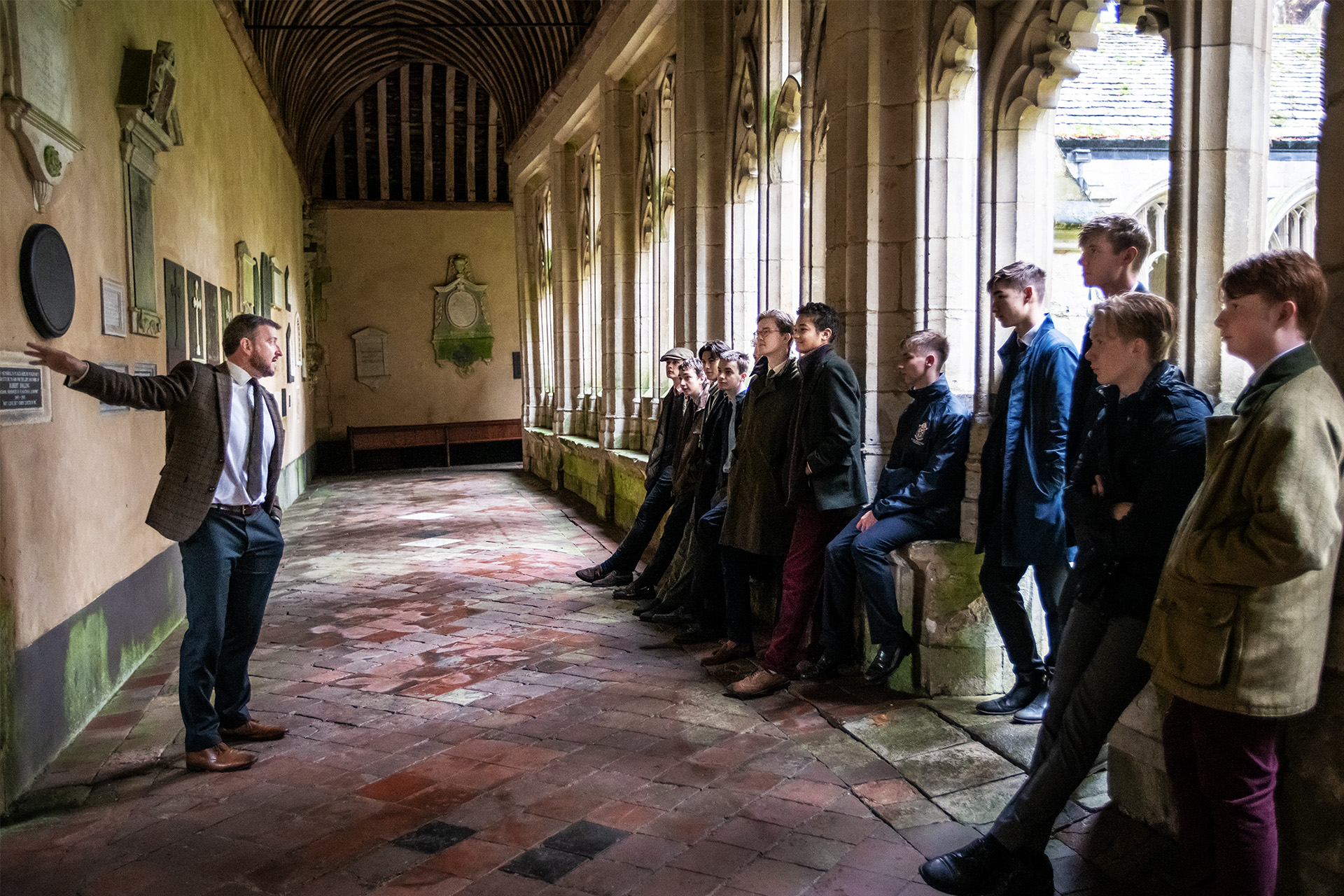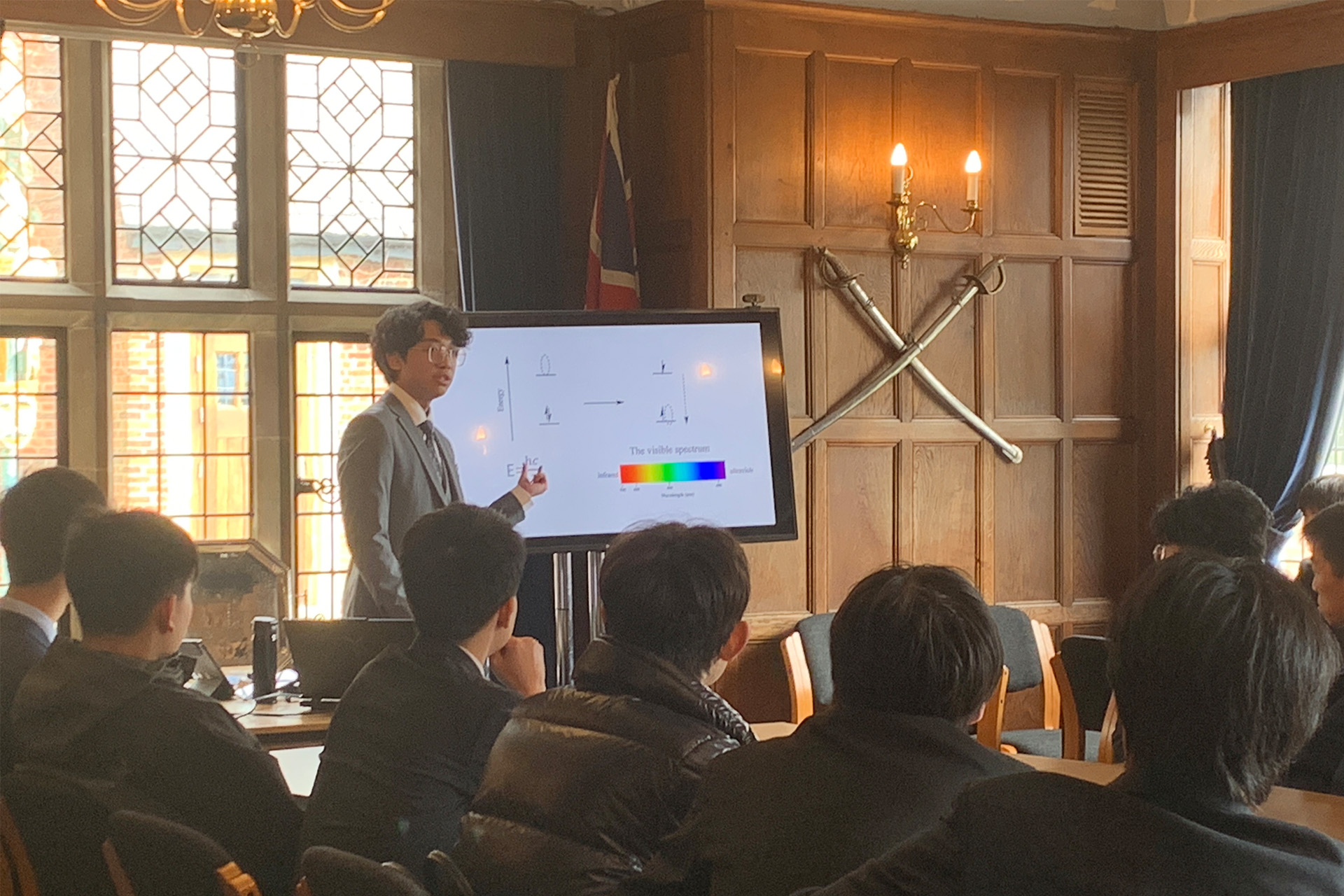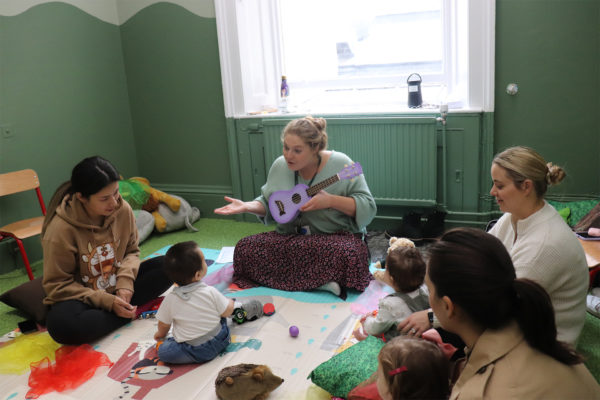Oxbridge Calling
By
8 months ago
Schools are rising to the challenge of tougher Oxbridge entrance requirements...

Oxbridge has always been the holy grail for most academic schools, and an annual haul of offers is a major selling-point for ambitious parents choosing where to send their child. Yet among independent schools, competition to achieve those sought-after places has never been tougher.
Over the past few years, both Oxford and Cambridge have concentrated on widening participation and entrance from students from state school backgrounds, explains Kevin Oldershaw, Academic Director of Queen Ethelburga’s Collegiate in north Yorkshire.
Oldershaw says: ‘This has inevitably made accessing these universities more challenging for those in the independent sector. However, for students best suited to, and prepared for, an Oxbridge education, this remains a realistic ambition.’
Since 2017, the proportion of independent school pupils admitted to Oxford has fallen from around 29 to 20 percent, while Cambridge’s has fallen from 27 to 19 percent over a similar period.
Admissions tutors now consider the calibre of applicants’ schools, social background and even postcodes to put their achievements in context and identify talent among disadvantaged pupils. Their outreach efforts which once included the fee-paying schools are now centred entirely on the state system.
So how are the top independent schools working to give their pupils the best chance of a place in this rapidly changing landscape?

Queen Ethelburga’s Collegiate, Yorkshire.
Winchester College is famously academic and achieves an impressive tally of Oxbridge offers each year. Its Head, Elizabeth Stone, is convinced that there are no shortcuts – and simply snagging a hatful of Grade 9s at GCSE is no guarantee of an offer.
‘The secret to Oxbridge admissions is that there is no secret,’ Stone insists.‘The most important thing is to work really hard at all of your subjects.’ That doesn’t just involve scoring high marks:, she points out. ‘It means going the extra mile to engage in the topic, for example by attending every talk you can, entering optional competitions or doing extra reading.’ Head to Wales, and Cardiff Sixth Form College regularly tops the national A-Level league tables, thanks to its focussed, long-hours approach and diligent, driven, predominantly international students. The majority hail from China and Hong Kong, many studying STEM subjects particularly Medicine and the Sciences. More than a tenth of this year’s leavers have received Oxbridge offers; others are bound for equally competitive universities in America and Asia. Whatever their target destination, the college helps its students achieve the stellar grades (often 4 A*s ) that they will need. But its Principal, Tom Arrand, also recognises the need to produce articulate, confident young people, capable of critical thinking that will help them to shine in interviews and interact effectively in the workplace.
‘We identified the skills required beyond high predicted grades,’ Arrand explains, ‘the ability to think, rationalise and write coherently. We run a course internally called ‘English for Academic purposes’ to improve our students’ critical speaking – and to make sure that they are both generally fluent and intellectually fluent in English. One member of staff runs extra- curricular debating and public speaking sessions at weekends and in the evenings because even those reading Engineering or Maths must be able to talk and discuss their subjects lucidly, so we’re adding debating and advocacy skills to people who are already academic high-flyers.’

Wellington College, Berkshire.
Wellington College likewise takes its Oxbridge applications seriously, providing demanding extension activities to introduce its Lower 6th formers to university-level work, such as literary theory for those hoping to read English. The college also advises pupils on the right courses to apply for, which will best suit their skills and interests, including subjects not taught in school, like Politics or dual-honours studies like Physics and Philosophy, or Archaeology and Anthropology.
Tim Head, who has helped prepare candidates for Oxbridge entry at Wellington for many years also acknowledges that independent school pupils are at an advantage ‘when applying for certain subjects which the state schools rarely tackle.’ Few teach Latin and Greek, for example, so a higher proportion of independent school pupils are accepted for these. ‘Our bright, young Classics Department has had many Oxbridge successes recently, as has Modern Languages,’ he explains. ‘While it’s a shame that the UK’s state system is no longer able to offer these subjects widely, the universities still need to fill their places. This also seems to be the case with the Arts, another area where we have consistently managed to achieve success, with a high number of successful Music applicants recently.’
Like Wellington, Queen Ethelburga’s Collegiate promotes a wider approach to study than simply attaining top grades at A-level. The Extended Project Qualification which many of the school’s sixth formers undertake forms a crucial plank in their applications.
The school also taps into the experience of its network to boost the prospects of students applying for the most competitive courses, such as Medicine and Veterinary Sciences. It runs an Early Applicant Programme for Oxbridge applicants, with visiting alumni who are current students at Oxford or Cambridge leading informative workshops and lectures on applying to and studying at the two universities.
Among this year’s success stories have been two offers for Mathematics at Cambridge, one for English and History at Oxford and one for Medicine at Oxford, achieved by Deputy Head Girl Georgia while also taking part in high level dance performances and playing first team hockey and netball.
Most independent schools provide mock interviews and detailed feedback to help their students shine and demonstrate their true potential – and some, like Wellington College, which partners more than 30 local state schools, also share their admissions expertise with the public sector. ‘We run online Oxbridge preparation sessions which our partner schools’ pupils, teachers and parents can tap into throughout the year,’ says Ruth Lexton. ‘We also arrange mock interviews for their pupils with our teachers; it’s really worthwhile.’ And she adds: ‘Oxford and Cambridge set a number of aptitude tests in different subjects and we really prepare our pupils for these. At both universities, the English Literature tests involve a response to unseen material and candidates are given a range of texts on a theme. They choose two extracts from this set and write an essay closely analysing these two texts. These tests are designed to make it a level playing field for everyone, with no extra knowledge needed, but we give thorough practice and preparation in how to tackle them.’
However naturally talented a candidate might be, the message remains that – there is no substitute for a real love of the subject backed up by rigorous hard work and focus.

Cardiff Sixth Form College.
‘An able pupil might, with some strategically superficial work and some last-minute cramming, achieve a grade 9 at GCSE,’ says Elizabeth Stone, ‘but they will be far behind a peer who has the same grade, but has worked consistently throughout, grasped the underlying principles and, through curiosity and drive, soared beyond the requirements of the exam. The searching questions posed at an Oxbridge interview will quickly reveal the true depth and fluency of understanding. The immersive experience of a school like ours is designed to promote this depth of thinking.’
Ultimately, all applicants benefit from good counsel. Theo Boyce, Head of Operations at Oxbridge Applications, says: ‘It’s crucial that students are able to demonstrate deep engagement with their chosen subject outside their schoolwork and they can often put this off until too late. Whether this is down to trepidation or procrastination, often the best advice is to ‘start now!’
‘One slightly counter-intuitive but powerful piece of advice is to have more fun. We tell students to keep a philosophical, ‘big picture’ attitude, and learn about their subject because they enjoy doing it, regardless of the outcome.’






